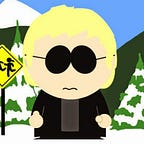Superhero Lessons in Segmentation
Know your audience- and your characters
As superheroes and other comic book properties have become increasingly popular in recent years, I’ve been paying attention to the heroes my friends and colleagues tend to favor. Apparently, the producers at DC Comics and the CW have been doing the same.
Yes, Supergirl started on CBS. I don’t care.
The CW has gained newfound popularity (and some infamy) by dedicating four hours of its primetime schedule to shows based on DC characters. And they’ve found one or two distinct qualities in each show to appeal to a different audience. It’s not Batman vs. Superman, but it is an interesting example of marketing segmentation of similar products to different groups.
On the surface…
Let’s get the obvious segmenation out of the way: aliens (Supergirl), metahumans (Flash), humans (Arrow), and time-travel (Legends). Some aspects of each show appear in the others, and magic pops up on occasion, but it is easy to divide these four shows into categories with different appeal.
But the writers and producers of these shows deserve credit for taking those singular characteristics and building real characters around them.
Supergirl
Kara Danvers was born on the planet Krypton, sent to Earth by her parents before the planet was destroyed. You know, Superman’s cousin. She’s an alien raised by Earth-born humans with good hearts and good values. She’s also a young woman trying to start a career and live up to the ideals of Superman.
The show features multiple aliens, both good and evil. In addition to J’on J’onzz, the last green Martian, there are alien fugitives and immigrants from multiple worlds.
The show features a running theme of nature vs nurture, as Kara tries to live an ordinary life while also using her abilities to help others. It also does a fair job of addressing tension between Earthlings and aliens as a not-so-subtle allegory for prejudice, xenophobia, and immigration debates.
Flash
Barry Allen dedicated his life to forensic research after his mother’s murder. A lab accident gave him the ability to run faster than humanly possible. He’s the fastest man alive (until they need a villain to challenge him). And the show is full of other metahumans, some good, some bad.
Barry is also an optimist in the truest sense. He spent his life searching for the impossible, and he found it. He always believes events can turn out for the best, even when he knows they probably will not. He empathizes with his opponents. He looks for best in everything and everyone.
Barry always tries to do what is right, although his emotions can get the better of him. And when he makes a mistake, he always tries to make it right.
Arrow
Oliver Queen was a spoiled, selfish rich kid who had both his world view and his actual life shattered when his boat crashed on an island. He was forced to survive, and he found a mission of vengeance from his father’s writings.
Initially, Oliver hunted down evil men and killed them (or at least tried). As time passed, he turned away from the killing and began seeking both right and redemption. He trains incessantly in order to pursue his goals.
Oliver is an ordinary man (by hero standards) who is trying both to atone for his past and work to help others who cannot always help themselves. He struggles with trust and honesty. He’s been betrayed repeatedly. He still tries.
Legends of Tomorrow
The team assembled by Rip Hunter in Legends of Tomorrow were led to believe they had a grand destiny to fulfill. Even though Rip was lying to them about the circumstances, the team is actually embracing just such a task. They protect history in order to protect Earth.
A ninja assassin. An genius inventor who only wanted to be a hero. Two villains (one since deceased). An athlete who lost his future and a research scientist who lost his faith, teaming together to become Firestorm. Disparate people learning to work together, trust each other, and literally save history.
So the whole “team of misfits” bit is cliched. It works.
In conclusion…
So are the shows defined by the type of each character? Absolutely. But the producers built on those core qualities, threw in a few others from decades of comic history, and built four different stories into an enjoyable multiverse.
